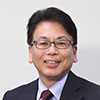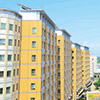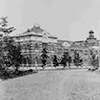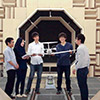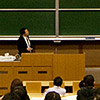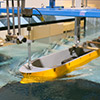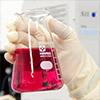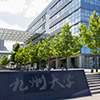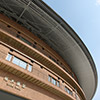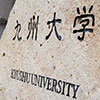The courses of the IUPE program are taught by specially appointed international faculty along with senior Japanese professors, with both these groups actively involved in the advanced research activities of Kyushu University. Many of KIKAN Education courses and Common Engineering Courses are taught by international faculty members, and we here introduce some of these staff members to you.

Associate Professor, Dept of Applied Chemistry
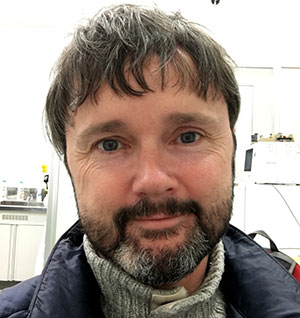
Courses currently teaching:
- Basic Chemistry
- Inorganic Chemistry
- Technical Communication
- Engineering Ethics
What are your impressions of the IUPE program?
What distinguishes our program from other international courses is the small community atmosphere. The Faculty of Engineering works hard to take care of the students and foster their development. Leaving your country can be tough, so Kyushu University has specialized student counseling services to help people with that transition. As for academic development, chemistry students get three semesters in real research laboratories, working alongside international scientists (I only had one semester for my Bachelor’s degree).
It’s fun to have so many different cultures in one room and the small class sizes mean there are a lot of student-teacher interactions. In fact, the sheer number of questions means I often get pushed for time during lectures and it’s not unusual to have a small crowd discussing extra topics afterwards.
What is the importance of the subjects you are teaching relation to engineering?
Regarding chemistry, all students are required to take the basic chemistry in their first semester. The reason for that is because every aspect of our world in some way depends on chemistry. As engineers, we need at least a basic understanding of chemistry to be able to develop and lead projects that rely on modern materials and fuels. Regarding technical communication, good writing is essential since you will have to communicate thoughts, ideas, and concepts that are completely new to your audience. You will have to communicate research that no one has ever done before and convince people that is important.

Associate Professor, Dept of Civil Engineering
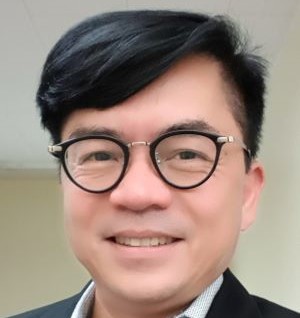
Courses currently teaching:
- Ordinary Differential Equation I・II
- Fourier Analysis I・II
- Complex Function Theory I・II
What are your hopes about IUPE students?
I hope the IUPE students grow in understanding the world and their chosen engineering fields, developing the knowledge and skills needed to excel in their academic pursuits. Since the university provides them with a vast opportunity to learn, I hope they cultivate a sense of curiosity and a lifelong love of learning, recognizing that education is a continuous journey of discovery. When they retain a sense of good purpose and commitment, they can help others and positively impact the future with their talents and gifts.
What do you hope students will take away from your classes?
I hope students appreciate and have a deeper understanding of the concepts and techniques taught in class and recognize the invaluable role of character development and academic prowess. Through the cultivation of critical thinking, problem-solving skills, and perseverance, students enhance their mathematical proficiency and strengthen their character. I aim for students to appreciate that these attributes are powerful tools applicable not only in academic pursuits but also in navigating life’s challenges with resilience and integrity. Whether they continue to pursue graduate studies or apply their mathematical skills in their work, I hope that what they learned from class has equipped them with the tools and mindset needed to succeed in their academic and professional endeavors while fostering qualities such as resilience, integrity, and a desire of lifelong learning.

Associate Professor, Dept of Aeronautical and Astronautical Engineering
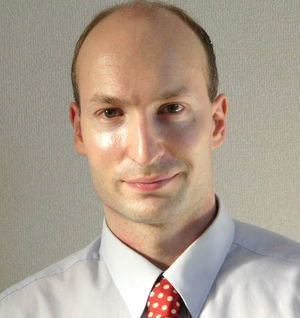
Courses currently teaching:
- Calculus (I~IV)
- Fluid Mechanics
- Mathematical Engineering
What are your thought about IUPE program?
The IUPE program allows students to follow a complete undergraduate program conducted entirely in English, which runs parallel to the undergraduate program conducted in Japanese. In my own experience, the IUPE students and their teaching program are distinguished by several welcome characteristics. For one thing, the IUPE students are notably engaged with the lectures, with a high level of interaction between the students and the lecturer through questions posed by the students and so on, which greatly aids the learning process. Furthermore, being relatively small in number in comparison with those following the Japanese language curriculum, there is a notable kinship and positive, friendly group dynamic among the IUPE students, that must help the students to really enjoy their time in Fukuoka, and help to build networks that support their future careers.
What do we learn to do in your courses?
Galileo Galilei wrote in 1623 that `The universe cannot be read until we have learned the language and become familiar with the characters in which it is written. It is written in mathematical language’. Despite the passage of years, this rather accurately describes the role and importance of mathematical education for those studying the physical sciences and engineering today. Laws of physics and other sciences provide us with quantitative relationships, or, more simply, equations, expressed in terms of important physical quantities. To actually calculate these quantities, such as fluid velocity, temperature and so on, as we must do when considering engineering applications, we must be able to solve the equations. My mathematical courses teach you how to solve these equations, and thereby deduce important engineering quantities, and, along the way, introduce you to the power and beauty of mathematics.

Associate Professor, International Institute for Carbon-neutral Energy Research (I2CNER)
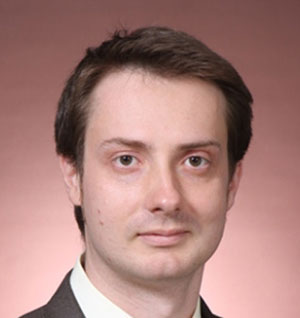
Courses currently teaching:
- Physical Chemistry I (Thermodynamics)
What do you hope students will take away from your course?
I really hope that the students will grasp the beauty of the fundamental physics and its implication on our daily life. I hope that after the class they will be inspired to perform research in world leading laboratories and develop critical thinking which is so crucial for the young scientist. I also hope that my course will shed light on their future choice between fundamental science or more applied research carrier. But most of all, I hope that they will have a lot of fun as we uncover the secrets of modern physics and chemistry.
Do you have any advice for incoming students?
While studying abroad might be challenging it is indeed a lot of fun and brings us across the boundaries of countries and cultures. It is even more enjoyable when we have the chance to experience top-level research facilities that are available at the various leading institutes of Kyushu University. I hope that the students will make the most of their stay with us and graduate with great career perspectives and many life-long friendships.

